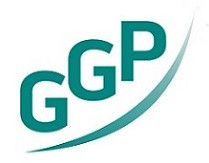Survey Data
INED DataLab manages the catalog of INED surveys and databases, and the catalogue of the Generations and Gender Program (GGP). These catalogs are available online for consultation open access. Survey metadata are provided according to the Data Documentation Initiative (DDI) standard. This standard, based on the eXtensible Markup Language (XML), allows the general description of empirical studies down to the level of each of the variables in a dataset.
DataIned includes surveys, as well as demographic and contextual databases realized at INED since 1942. It is possible to browse metadata about these surveys and databases and, for some surveys, it is possible to access detailed documentation for each variable (question text, instructions to interviewers, filters, response categories and summary statistics), as well as to compare variables with each other. DataIned was developed with the World Bank’s NADA open source software. This software has a modern interface and powerful search tools: search bar, predefined filters (themes, collection years, series, etc.).
Among the surveys listed in the catalog, for some it is possible to order the data file(s) via the Quetelet-PROGEDO-Diffusion ordering application; for others, it is currently not possible to order the data file (either because it does not exist, or because it is not yet available). There are also databases directly downloadable or available from external archives or websites.
Order INED surveys via the Quetelet-PROGEDO-Diffusion portal
The data are accessible free of chargeto French and foreign researchers, doctoral students, post-docs, and students, for the purposes of research, scientific production and, in certain cases, of teaching . Access procedures are subject to a user authorization procedure with the Statistical Confidentiality Committee . The procedures for accessing INED data (but also the data of other Quetelet PROGEDO Diffusion partners: ADISP and CDSP, are detailed here.
Launched in 2000 at the initiative of the United Nations Economic Commission for Europe (UNECE), GGP proposes the provision of harmonized national longitudinal surveys on family and couple relationships. So far, more than twenty countries have participated in the GGP. GGP surveys cover a wide range of topics, including fertility, living as a couple, transition to adulthood, economic activity, individual attitudes. The data can be viewed via the project platform, developed with Colectica, a software specifically conceived to explore metadata and variables of longitudinal surveys.
Order the GGP data
The data requets procedure is fulfilled through the online application available on the GGP website and managed by UNECE. To access GGP surveys, users must sign and submit a Statement of affiliation, confidentiality and acceptable usage. Access to GGP surveys is free and for research purposes only.
Find out more about the work of making surveys available at the DataLab
INED DataLab - Baron, Caporali.
Data and documentation acquisition procedure - Baron, Caporali.
Survey Data Anonymisation and Pseudonymisation at Ined - Baron, Lenoir, Caporali, and Merly-Alpa






